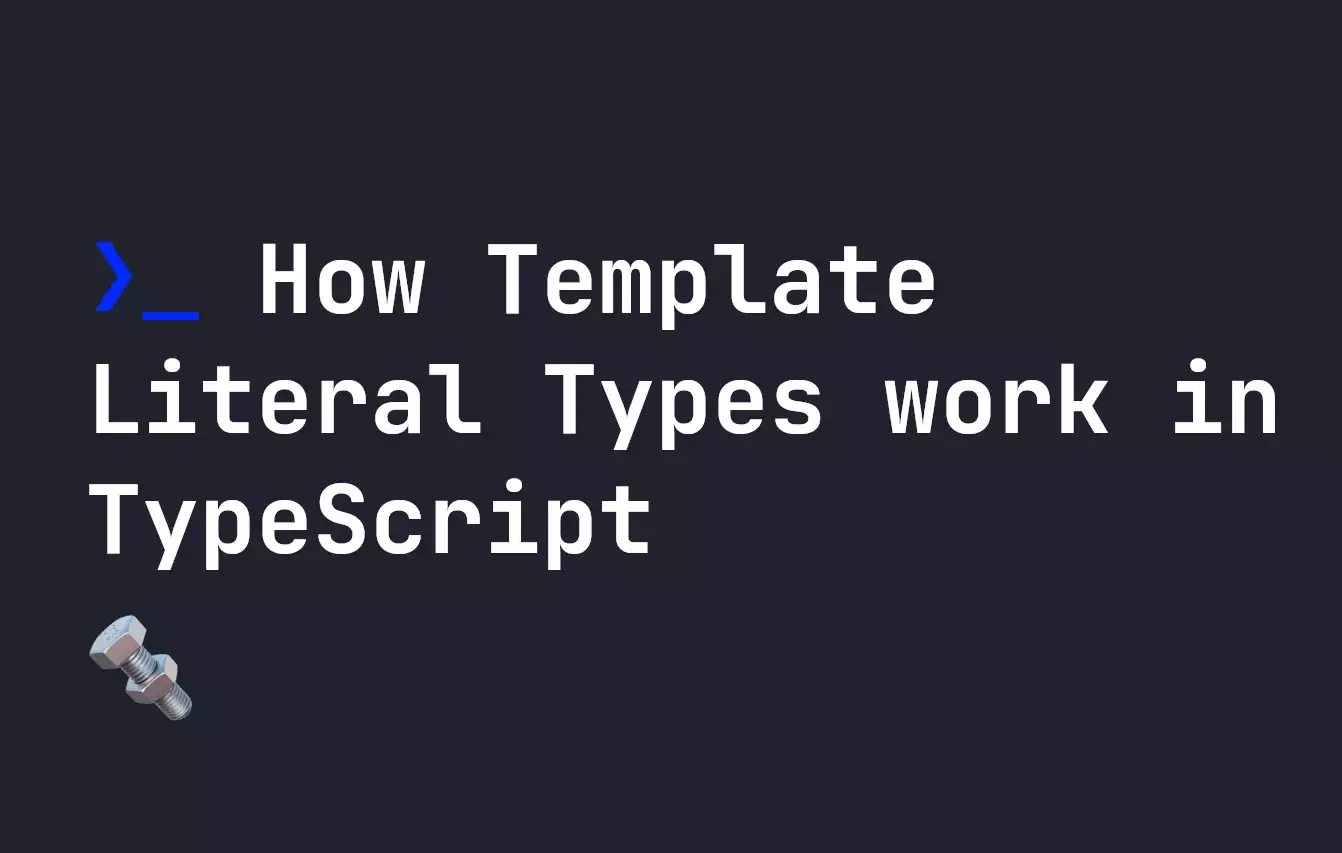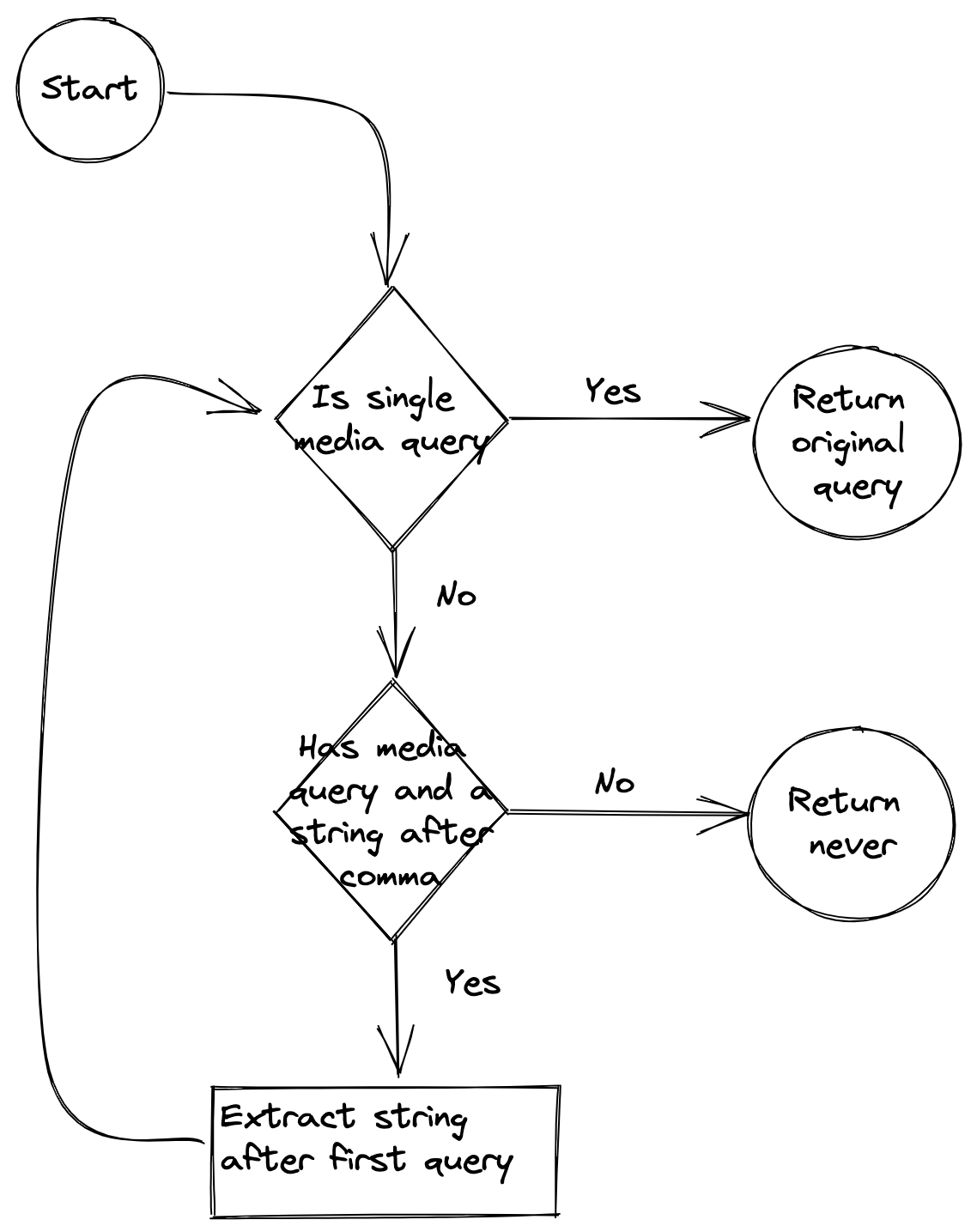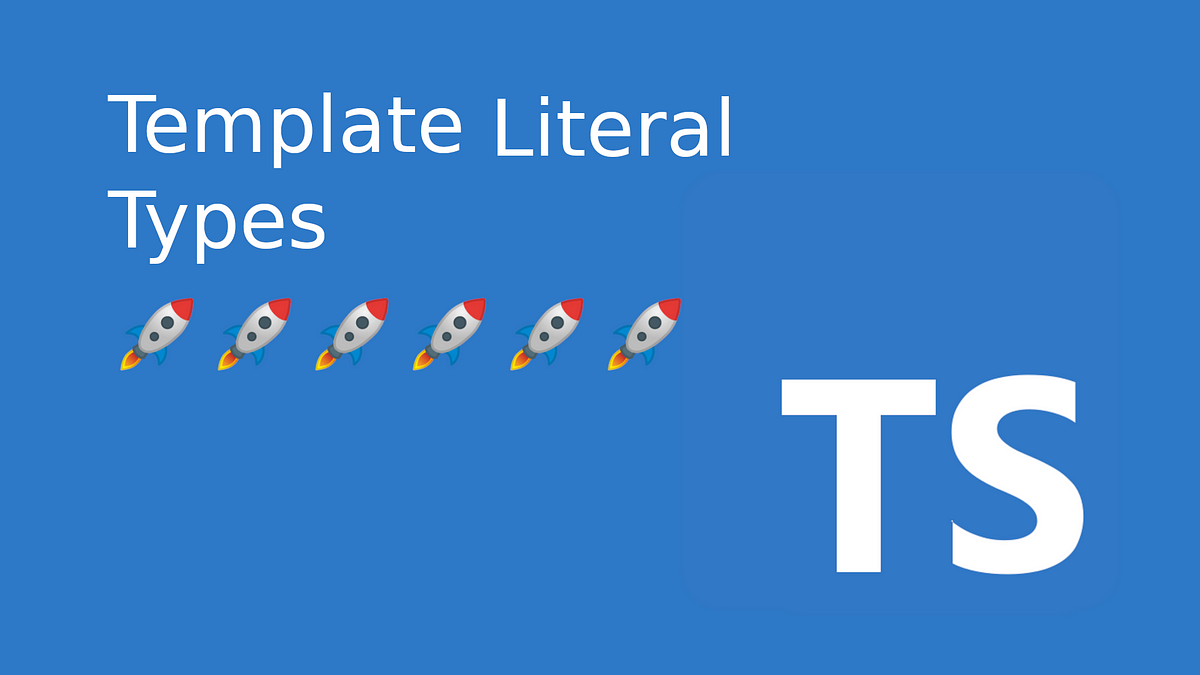
TypeScript Template Literal Types Kenan Hançer Blog - Typescript's template literals facilitate validation of string formats. [tslint] use a template literal instead of concatenating with a string literal. Template literal types allow us to define complex types by combining and manipulating string literal types using template string syntax. Template literal types in typescript provide the ability to create complex type relationships by interpolating strings within types. Template literal. You should also read this: Pharmacy Ppt Template

Template Literal Types in TypeScript Maina Wycliffe - Template literals, introduced in ecmascript 6 (es6) and fully supported in typescript, provide a more flexible and readable way to create strings. This works just like template. Learn to leverage advanced type features for more expressive,. Template literal types allow us to define complex types by combining and manipulating string literal types using template string syntax. Typescript's template literals facilitate. You should also read this: Rental Lease Agreement Template In Spanish

Menggunakan TypeScript Template Literal Type by Armedi Hyperjump - What i got so far is the following: Typescript's template literals facilitate validation of string formats. In most cases, though, this isn’t needed. Template literal types allow us to parse the path to produce a safe and accurate type for req.params. We use infer inside a template literal to determine the prefix first before a separator sep and then recursively. You should also read this: Transcript Templates

How Template Literal Types work in TypeScript - They have the same syntax as template literal strings in javascript, but are used in. What i got so far is the following: Typescript's template literals facilitate validation of string formats. Template literal types build on this, allowing you to build new types using a template and can expand to many different string using unions. First, we need a generic. You should also read this: Free Farewell Party Invitation Templates

Template Literal Types — TypeLevel TypeScript - In this example, an ipv4address type is defined that uses template literals to enforce a specific string pattern (an. This feature is especially useful. Typescript's template literals facilitate validation of string formats. Template literal types build on this, allowing you to build new types using a template and can expand to many different string using unions. Create type b by. You should also read this: Poshmark Listing Template

TypeScript Template Literal Types Kenan Hançer Blog - [tslint] use a template literal instead of concatenating with a string literal. Template literal types allow us to parse the path to produce a safe and accurate type for req.params. This feature is especially useful. Learn to leverage advanced type features for more expressive,. In this example, an ipv4address type is defined that uses template literals to enforce a specific. You should also read this: Teacher Pay Teacher Weekly Homework Template

TypeScript Template Literal Types YouTube - They have the same syntax as template literal strings in javascript, but are used in. We use infer inside a template literal to determine the prefix first before a separator sep and then recursively invoke split (line a). This feature is especially useful. In most cases, though, this isn’t needed. In this example, an ipv4address type is defined that uses. You should also read this: Apple Stem And Leaf Template

What are template literal types in TypeScript? Juhana Jauhiainen - Template literal types in typescript provide the ability to create complex type relationships by interpolating strings within types. They are as flexible as javascript template. We use infer inside a template literal to determine the prefix first before a separator sep and then recursively invoke split (line a). This feature is especially useful. In most cases, though, this isn’t needed. You should also read this: Job Offer Rejection Letter Template

TypeScript Template Literal Types r/DevTo - Template literal types in typescript provide the ability to create complex type relationships by interpolating strings within types. Template literal types allow us to parse the path to produce a safe and accurate type for req.params. What i got so far is the following: Type a = { a: Type annotations will always go after the thing being typed. You should also read this: Manufacturing Sop Template

Mastering TypeScript Template Literal Types by Jose Granja Better - We use infer inside a template literal to determine the prefix first before a separator sep and then recursively invoke split (line a). I would like to prefix all keys in an interface using the literal type feature, but my understanding of types is too limited. In this example, an ipv4address type is defined that uses template literals to enforce. You should also read this: Facilities Master Plan Template